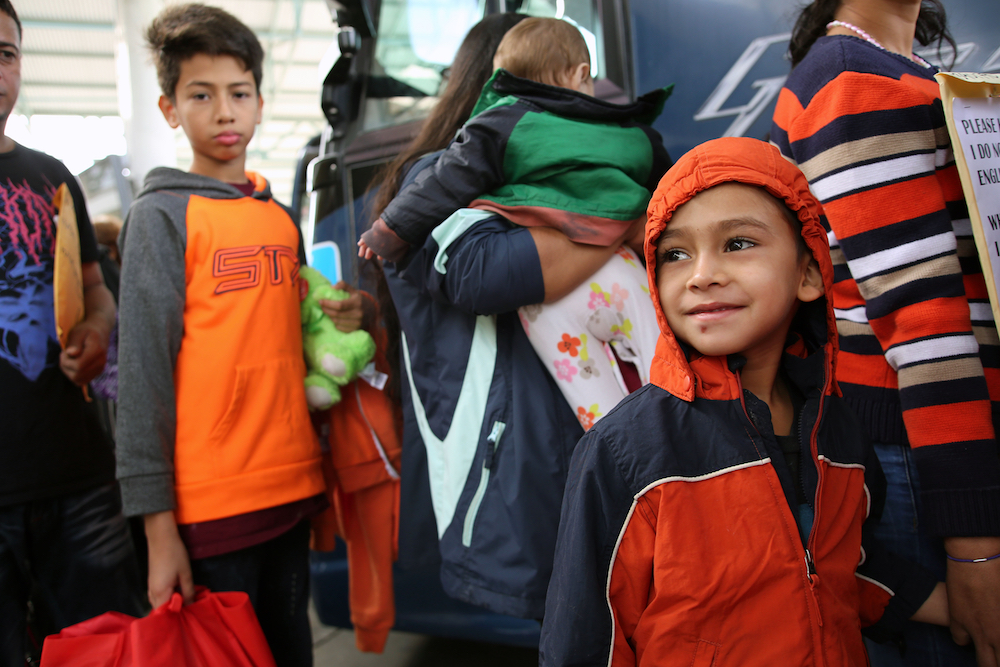The Journey to the American Dream Swept Away By the Currents of the River

Nothing can capture the essence of a complicated issue more than a photo. That is why in 2015, Europe came to understand the brutal struggle of Syrian refugees with the devastating photo of Alan Kurdi, a three-year-old old Syrian boy washing up lifeless onto the shores of the Mediterranean. His boat capsized as his family tried to make the dangerous journey to Greece.
This week, nothing made the stark plight of migrants to the U.S. more clear than the New York Times front cover photograph of Óscar Ramírez and his daughter of less than two years, Valeria, laying drowned and entwined face-down. Their journey to reach the American Dream was swept away by the currents of the river.
Parents leave behind all they have and often flee violence and threats in search of a better life for their children. And while the tragedy of the southern border of the United States is a matter of deep political divide, what cannot divide us is that we are all human – and that children, especially the most vulnerable and marginalized, deserve hope and opportunity regardless of which side of the border they were born.
More than 40,000 unaccompanied children have arrived at the southern borders in 2019. At any given time, 2,000 unaccompanied children are being placed in federal custody after crossing the southern border. We have heard the stories of children in cages without access to food, sanitation and care. These humanitarian needs are an immediate priority, and we must fight for them. It is also essential to ensure that these young people are not only given basic needs, but that we also follow this up with hope in a time of grave hopelessness. That is why education must be a central part of our response at the border.
Globally, more than 75 million children will have their education interrupted this year due to conflict and emergency. Just last week, UNHCR reported that 70 million people – half children — are displaced or refugees. And as an organization committed to ending the global education crisis, delivering education in emergencies is crucial to every child having the best start in life, a safe place to learn and the skills they need for the future. And the compassion and humanity to make this happen are at the heart of achieving the United Nations Sustainable Development Goal 4 – equitable and inclusive quality education for all.
At the Global Business Coalition for Education, we know that most refugee and migrant families are fleeing violence and war in hopes of a better future for their children, and this includes education. Since 2012, we have supported education for children in emergencies and crisis in Nigeria, Pakistan, Turkey, South Sudanese refugees in Uganda, Syrian refugees in Lebanon, and most recently Greece.
But as an U.S.-based organization, we must be prepared to respond to the needs at our own borders, letting humanity and agreed global goals – not politics – drive our decision making. If governments are unable to deliver the human right of education, we must take action to close the gap.
That is why we have decided to put our REACT initiative into effect to fund education in emergencies, allowing businesses and individuals to make a contribution to provide education to migrant children most in need of support. We believe that everyone, including businesses and their employees, has a role to play in keeping hope and opportunity alive for children.
We are cultivating the potential of the next athlete, inventor, teacher or entrepreneur.
Following this week’s wake-up-call of the risks families take to give their children a better future, we will use the initial funding to invest in vetted education programs on the U.S.-Mexican border as well as other similar emergencies that develop in the future. It will also allow us to conduct the analytical work to ensure sustainable education solutions are put forward for migrant children.
If a child shows up on our doorstep wanting opportunity, there is nothing more American we can do than support their American Dream. And the dreams that come with the opportunity of an education should be universally nurtured.
To invest in the next generation of young people and end the global education crisis, I invite businesses and individuals to contribute to our REACT initiative to fund education on the U.S.-Mexico border here.

